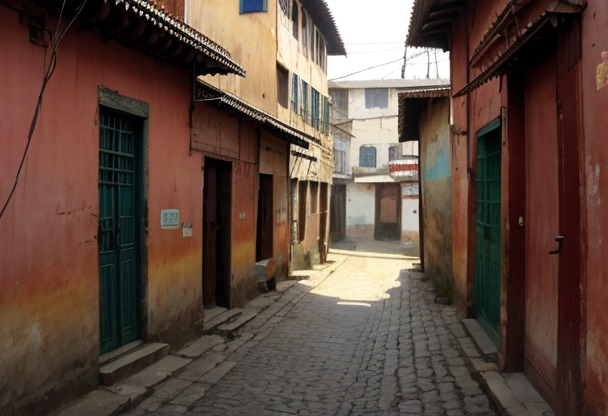The festive season is a particularly popular time to travel and discover new cultures. Among the exotic destinations to explore during this festive period, India is undoubtedly a country that will appeal to the curious in search of adventure. To prepare for your stay in this fascinating country, it's essential to know how to obtain an e-visa. Let's take a look at when and how to apply for an e-visa for your arrival in India during the festive season.
Why opt for an e-visa to visit India over the holidays?
India offers its visitors several types of visa, including the traditional visa and the e-visa. The latter offers several advantages for travelers wishing to spend the festive season in India:
- Time-saving : Unlike traditional visas, e-visa does not require you to visit an embassy or consulate to apply. Everything is done online from the comfort of your own home.
- Flexibility : e-visa can be requested for a variety of purposes, including tourism, business, study or short medical visits.
- Simplicity: The process for obtaining an e-visa is generally simpler and faster than for a traditional visa.
When should I apply for an e-visa to travel to India over the festive season?
 Since the holiday season is a particularly busy time for travel, it's important to plan a few weeks in advance. For example, we recommend that you apply for an e-visa approximately one month before your planned arrival in India (towards the end of November for departure during the school vacations). This will enable you to benefit from efficient processing of your application and avoid the stress of last-minute procedures.
Since the holiday season is a particularly busy time for travel, it's important to plan a few weeks in advance. For example, we recommend that you apply for an e-visa approximately one month before your planned arrival in India (towards the end of November for departure during the school vacations). This will enable you to benefit from efficient processing of your application and avoid the stress of last-minute procedures.
The time it takes to process an e-visa application: taking precautions
It usually takes between 3 and 5 working days for the Indian authorities to process an e-visa application and grant it. However, in certain circumstances, this time may be extended. For example, if your file contains errors or missing information, this will lengthen the time needed to obtain the e-visa. To avoid these inconveniences, make sure that your application form is duly completed and that all the required documents are enclosed.
Peak periods: anticipate your demand
During high-demand periods such as the festive season, e-visas processing times can be slightly longer than normal due to the large number of applications. So it's crucial to plan ahead and submit your application well in advance to avoid any delays to your travel plans.
⚠️ If you wish to apply for a visa yourself via the Indian authorities' official website, don't do so too soon, as you risk obtaining a visa with a 30-day entry window that doesn't correspond to your trip. In that case, you'll have to wait for the visa to expire... and apply for a new one as a matter of urgency!
How do I apply for an e-visa for a holiday in India?
The application process for an e-visa to India is simple and involves several steps:
- Gather the necessary documents: before you begin your application, make sure you have all the required documents on hand, including :
- A passport valid for the entire duration of your stay in India
- A recent passport photo in digital format
- Proof of the reason for your stay (round-trip plane ticket, hotel reservation, letter of invitation for business or study, etc.).
- Fill in the online form: visit us on indian e-visa official website and complete the form. You'll need to provide personal, contact and travel information. A visa agency like Visamundi also specializes in these procedures.
- Payment of fees : After completing the form, you will be asked to pay the visa fee by credit card. Fees vary according to the type of visa requested and the length of your stay.
- Track the status of your request : Once the request has been submitted, you can follow its progress by consulting the status on the same site. Your e-visa will then be e-mailed to you in PDF format.
Indian festivities over the Christmas period
During the Christmas season, there are no major Indian festivals that correspond exactly to the dates of Western holidays such as Christmas. In India, major holidays are often based on the Hindu lunar calendar, which does not coincide with the Gregorian calendar used in the West.
However, there are a few festivals that can sometimes be close to Christmas time, depending on the year:
- Pongal Pongal: This is a South Indian festival usually celebrated in January. Pongal is a celebration of the harvest, and although it doesn't exactly coincide with Christmas, it occurs shortly after.
- Lohri Lohri: Celebrated mainly in Punjab, Lohri marks the end of winter and is generally celebrated on January 13.
- Makar Sankranti Festival: This festival, also linked to the harvest, is celebrated around January 14. It's a time of great festivities in many parts of India.
